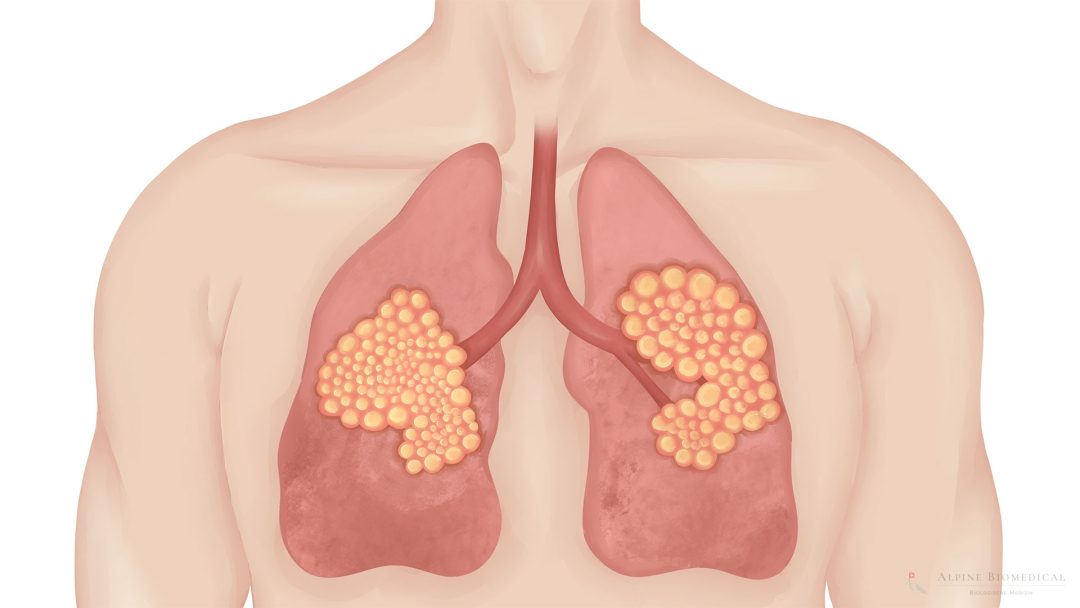Lung Cancer

Lung cancer is a malignant type of cancer that develops in the airways (bronchi) or lung tissue. Symptoms such as persistent coughing, shortness of breath, weight loss and chest pain can vary and only appear later in the course of the disease. Smoking is a significant risk factor for lung cancer. However, environmental pollution (e.g. heavy metals and pesticides) or other hazardous substances in the workplace can also promote the development of the disease.
Diagnosis and Treatment of Lung Cancer
Lung cancer is often diagnosed using imaging techniques such as X-rays or CT scans and tissue samples.
The treatment of lung cancer depends on the type and stage of the disease. This includes surgery, chemotherapy, radiotherapy and newer immunotherapies.
There are also successful complementary medicine supports that focus on holistic treatment. This includes a focus on nutrition, adequate supply of vitamins, minerals and trace elements, but also the restoration of optimal intestinal health by means of intestinal cleansing. In addition, hyperthermia and fever therapy have proven to be effective support for lung cancer.
Early detection and preventive measures, in particular smoking cessation and a healthy lifestyle, play a decisive role in preventing the development of cancer or metastasis.
Dr. med. Karsten Ostermann M.A.
Lung cancer is a serious disease. Advances in research and individual treatment approaches significantly improve the chances of survival and the quality of life of those affected.

Further information
The information listed contains relevant topics and serves to improve understanding.